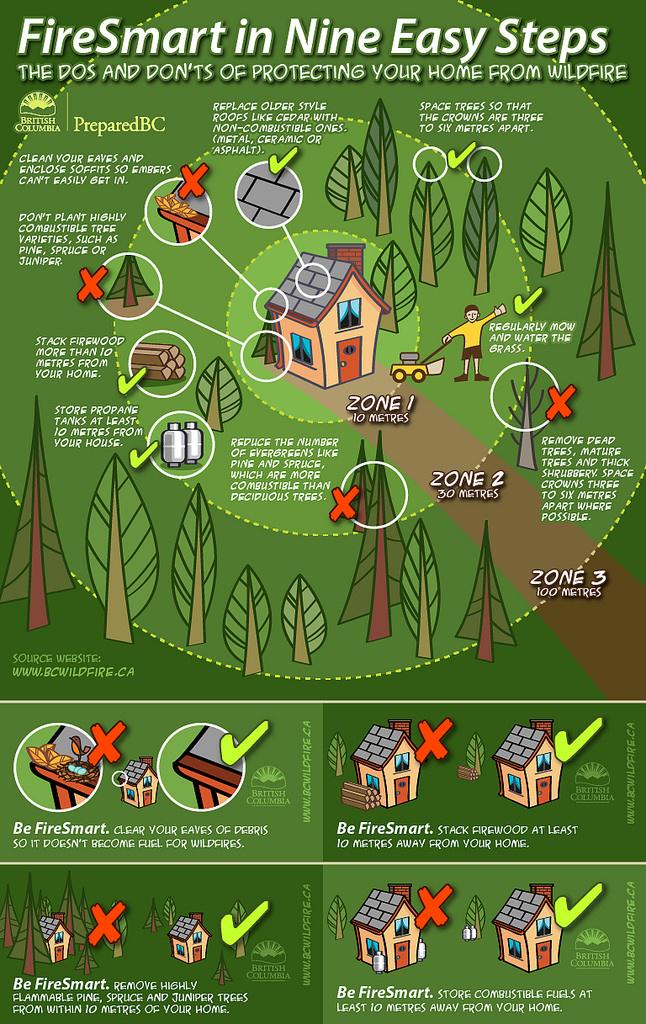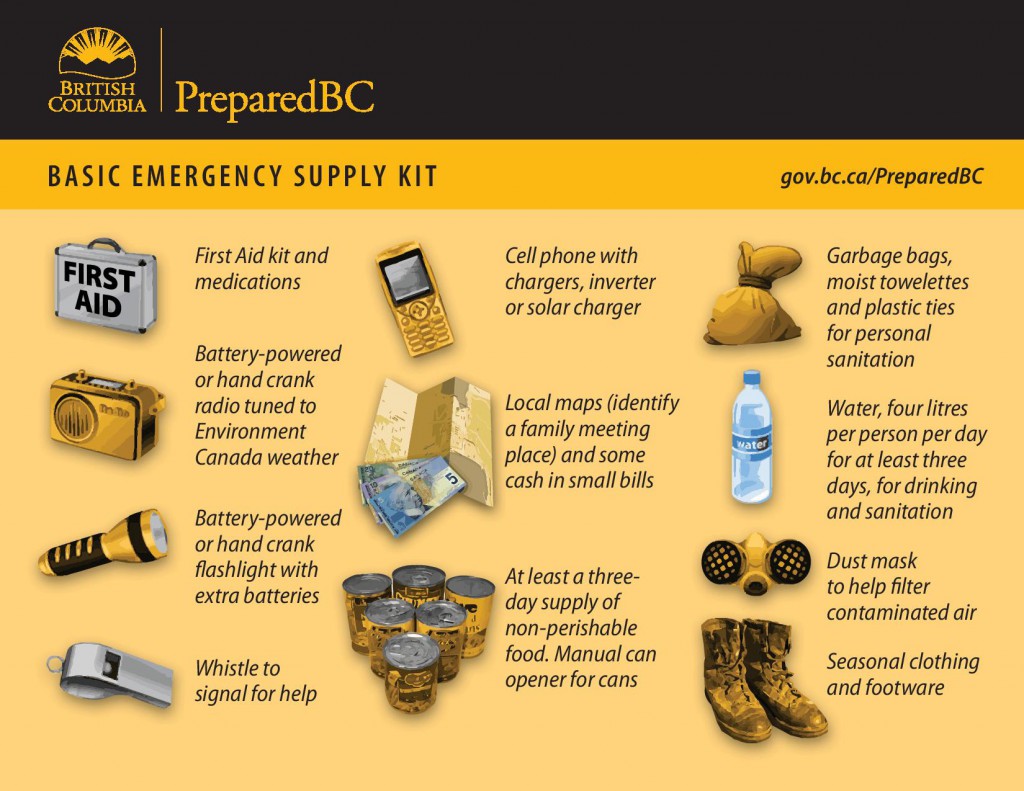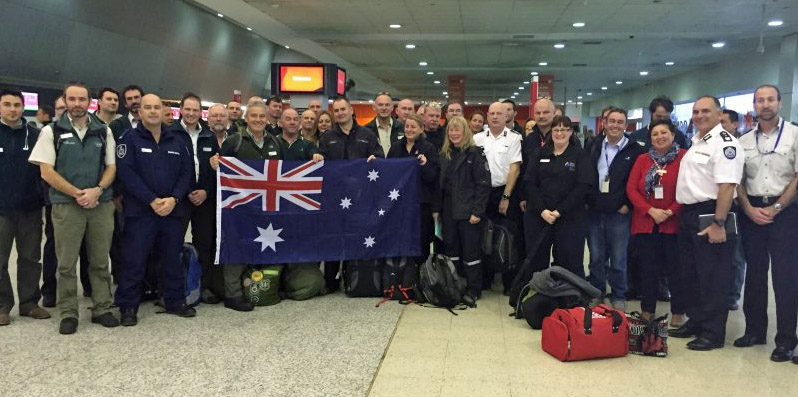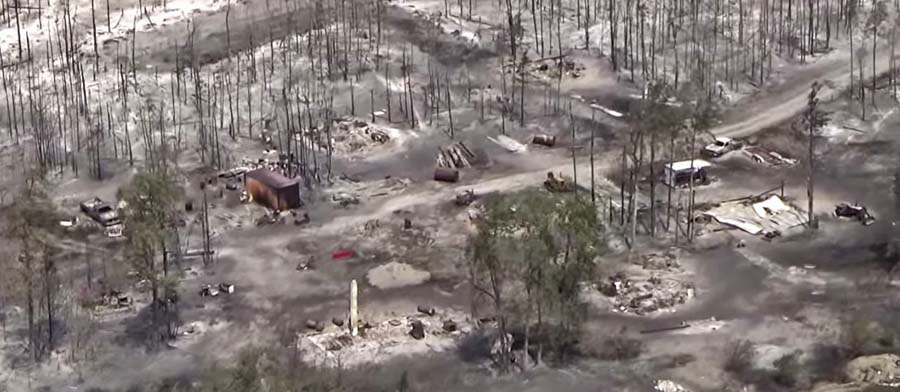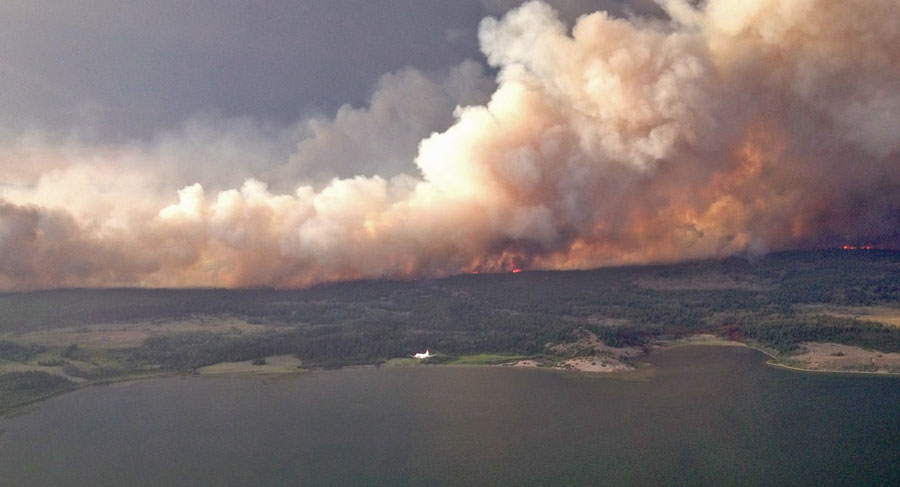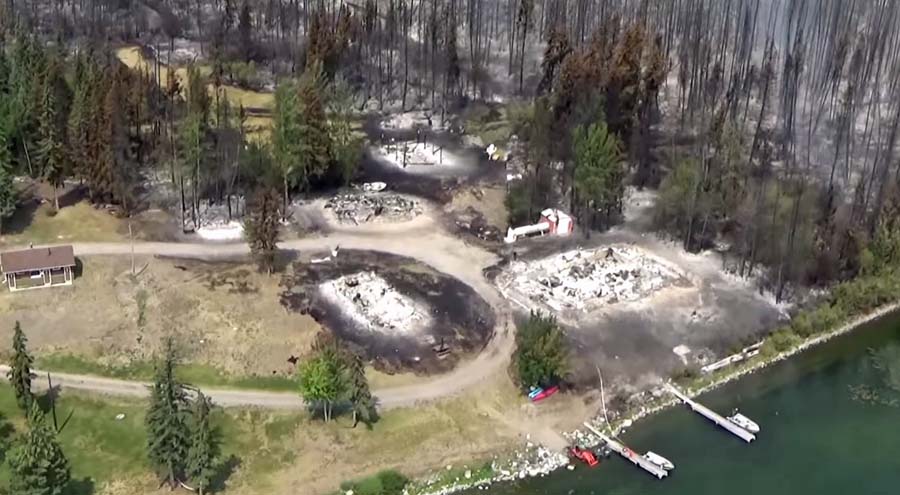Saskatchewan Premier wants a national fire cache and a fire mapping plane
The Premier of Saskatchewan, Brad Wall, wants the national government to establish a national cache of firefighting supplies and equipment that could be distributed when a province, or provinces, have multiple large fires ongoing. Perhaps he is thinking of a system similar to the one used in the United States, which has a national cache in Boise at the National Interagency Coordination Center.
“Some of those basic things that we would normally just call Manitoba or B.C. and say, ‘We need these things,’ well they were all fighting fires,” Mr. Wall said Wednesday. “Why, as a country, wouldn’t we have a cache? A national store to draw from if there is an occasion again where so many provinces are involved in fighting major fires?”
Mr. Wall also would like the see Canada acquire and operate a fire mapping plane that would use infrared detection equipment to see through smoke to map the perimeters and intensely burning areas of wildfires.
“If we could have at least one of those available nationally to provinces, because when it’s smokey, you have this whole flight … that’s grounded, and you might lose a little bit of ground that you might otherwise gain in better weather,” Wall said.
Wall will raise the idea at the premiers meeting in St. John’s, where he was heading on Wednesday.
Another drone shuts down aerial firefighting equipment
Sunday afternoon firefighting air tankers had to cease their operations on a fire near Yucaipa, California for about eight minutes when a drone was spotted over the fire.
Firefighting soldier takes bathroom break, gets lost for six hours
One of the 600 soldiers helping to suppress wildfires in Saskatchewan took a break to relieve himself Monday and didn’t return. His absence was noticed at 2 p.m. and a search began.
Below is an excerpt from an article at CBC.ca:
“I am happy to report, he is uninjured except for his pride, and many lessons, a number of lessons to be learned about this,” Brig.-Gen. Wayne Eyre said.
The Canadian Army said the soldier, one of some 600 from the Prairies deployed in the forest fire zone, had walked into the forest to relieve himself in privacy and got lost.
When others noticed he was missing at around 2:20 p.m. CST, a massive search began, involving soldiers, the Wildfire Management Centre, the RCMP, Canadian Rangers and other agencies.
The search virtually shut down firefighting in the area yesterday afternoon.
Eyre acknowledges that there should have been a buddy system in place, and the soldier, described as experienced, should have stayed in one spot.
Around 8:30 p.m., he was found.

